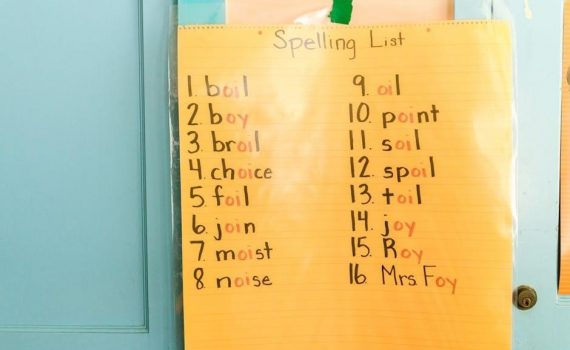west virginia phonics lessons pdf
Category : PDF
West Virginia phonics lessons emphasize foundational reading skills, focusing on phonemic awareness and decoding․ These lessons are tailored to early childhood education, providing teachers with structured PDF resources to support student literacy development effectively․
Overview of Phonics Education in West Virginia
Phonics education in West Virginia is a systematic approach to teaching reading and spelling skills, emphasizing the relationship between sounds and letters․ The state prioritizes phonics as a foundational component of early literacy, ensuring students develop essential decoding abilities․ West Virginia’s phonics curriculum is structured to align with state educational standards, providing educators with clear frameworks for instruction․ Schools incorporate evidence-based methods, such as explicit phonics instruction, to support learners at all skill levels․ The program also emphasizes teacher training, equipping educators with the tools to deliver effective phonics lessons․ Additionally, West Virginia integrates technology and hands-on activities to engage students and reinforce learning․ The focus on phonics reflects the state’s commitment to improving literacy rates and preparing students for long-term academic success․ By fostering a strong foundation in phonics, West Virginia aims to empower students with the skills needed to excel in reading and beyond․
Importance of Phonics in Early Childhood Education
Phonics plays a crucial role in early childhood education as it builds the foundation for reading and literacy skills․ By teaching children to connect sounds with letters, phonics enables them to decode words, fostering reading comprehension and fluency․ In West Virginia, phonics instruction is recognized as essential for preparing young learners to succeed academically․ Early mastery of phonics skills reduces the risk of reading difficulties and sets the stage for lifelong learning․ Phonics also enhances spelling abilities, as understanding sound-letter relationships helps children write words correctly․ Furthermore, phonics instruction promotes critical thinking and language development, equipping students with the tools to express themselves effectively․ West Virginia’s emphasis on phonics reflects its commitment to ensuring all students achieve literacy proficiency, which is vital for their future academic and personal success․

Structure of Phonics Lessons in West Virginia
West Virginia phonics lessons follow a systematic approach, emphasizing skill progression from phonemic awareness to advanced decoding․ Lessons align with state standards, incorporating activities that support teachers in delivering engaging, evidence-based instruction to students․
Core Components of Phonics Instruction
West Virginia phonics lessons are built on essential instructional elements designed to foster reading proficiency․ These components include systematic phonemic awareness, decoding strategies, fluency practice, and vocabulary development․ Instruction often begins with phoneme manipulation, blending, and segmenting sounds to build foundational skills․ Explicit teaching of phonics rules, such as sounding out words and recognizing patterns, is emphasized to improve decoding abilities․ Fluency is cultivated through guided and independent reading exercises, ensuring students can read with accuracy and expression․ Vocabulary instruction is integrated to enhance comprehension, focusing on high-frequency words and context clues․ Teachers are encouraged to use multisensory approaches, incorporating visual, auditory, and kinesthetic activities to engage diverse learners․ These components work together to create a comprehensive framework that supports students in mastering reading skills from kindergarten through early elementary grades․
Alignment with State Educational Standards
West Virginia phonics lessons are carefully aligned with the state’s educational standards, ensuring a cohesive and effective approach to reading instruction․ The West Virginia Department of Education outlines specific benchmarks for phonics and reading skills at each grade level, emphasizing systematic and explicit teaching methods․ These standards are reflected in the structure of phonics lessons, which focus on phonemic awareness, decoding, fluency, and comprehension․ By adhering to these guidelines, educators ensure that students develop the foundational skills necessary for lifelong literacy․ The alignment also extends to assessments, which measure progress against state benchmarks and inform instructional adjustments․ This ensures that all students, regardless of their background, have access to high-quality, standards-based phonics instruction․ The integration of state standards into lesson plans is a key factor in West Virginia’s commitment to improving reading outcomes and preparing students for academic success․

PDF Resources for West Virginia Phonics Lessons

West Virginia offers a variety of free PDF resources, including teacher guides, student workbooks, and interactive activities․ These materials are designed to support phonics instruction and are easily accessible online for educators and students alike․

Popular PDF Materials for Teachers and Students
West Virginia provides an array of popular PDF materials designed to enhance phonics instruction․ These resources include teacher guides, student workbooks, and interactive activities tailored to meet diverse learning needs․ Many PDFs focus on phonemic awareness, decoding skills, and sight word recognition, ensuring a comprehensive approach to literacy development․ Teachers can access lesson plans, worksheets, and assessment tools to support their classroom instruction․ Additionally, student-focused materials offer engaging exercises, reading passages, and games to make learning phonics enjoyable and effective․ These PDF resources are widely available online, often free of charge, and are aligned with West Virginia’s educational standards․ They serve as valuable supplements to traditional teaching methods, helping students build a strong foundation in reading and literacy skills․
- Teacher guides with structured lesson plans and teaching strategies․
- Student workbooks featuring practice exercises and interactive elements․
- Flashcards, word games, and assessments to reinforce learning․
These materials are essential for fostering a love of reading and improving academic outcomes in West Virginia schools․
Accessing Free Phonics Lesson Plans Online
West Virginia educators and parents can easily access free phonics lesson plans online through various platforms․ Official state educational websites and repositories offer downloadable PDF resources tailored to meet phonics curriculum requirements․ These materials are designed to align with West Virginia’s educational standards, ensuring consistency and effectiveness in teaching․ Popular platforms include the West Virginia Department of Education website, educational forums, and open-resource libraries․ Many schools and non-profit organizations also provide free PDF lesson plans, worksheets, and activities to support phonics instruction․ Additionally, online marketplaces like Teachers Pay Teachers offer free and paid resources specifically designed for West Virginia classrooms․ By utilizing these online resources, educators can create engaging and structured phonics lessons for students of all skill levels․ These materials are often updated to reflect current educational trends and methodologies, making them invaluable tools for fostering literacy development․
- Official West Virginia Department of Education resources․
- Open-resource educational platforms and forums․
- Free PDF materials from schools and non-profits․
These accessible resources empower teachers to deliver high-quality phonics instruction effectively․

Effectiveness of Phonics Lessons in West Virginia
West Virginia phonics lessons have proven successful in improving literacy rates and reading proficiency among students․ Research highlights their alignment with educational standards, ensuring measurable progress in foundational reading skills and long-term academic success․
Research on Phonics Instruction Outcomes
Research on phonics instruction in West Virginia highlights its critical role in improving literacy outcomes․ Studies demonstrate that systematic phonics instruction enhances students’ ability to decode words, leading to stronger reading comprehension and fluency․ West Virginia’s focus on evidence-based phonics methods has resulted in measurable gains in early literacy skills․ Schools implementing phonics programs report higher proficiency rates on state reading assessments․ Additionally, these programs have been shown to narrow achievement gaps, particularly for at-risk students․ Teachers attribute the success of phonics instruction to its structured approach, which aligns with state educational standards․ Longitudinal studies indicate that students who master phonics skills in the early grades are more likely to excel in later academic years․ Overall, the research underscores the effectiveness of West Virginia’s phonics instruction in fostering a strong foundation for lifelong learning and academic success․
Success Stories from West Virginia Schools

West Virginia schools have seen remarkable success through the implementation of phonics-based reading programs․ One elementary school in Charleston reported a 25% increase in reading proficiency after adopting a systematic phonics curriculum․ Teachers noted significant improvements in students’ ability to decode complex words and comprehend texts․ Another school in Morgantown shared a story of a first-grade class where nearly 90% of students achieved reading benchmarks, up from 60% the previous year․ These successes highlight the impact of phonics instruction on early literacy skills․ Parents and educators alike have praised the structured approach, citing improved confidence and engagement among students․ Such outcomes demonstrate the effectiveness of West Virginia’s commitment to evidence-based phonics education, paving the way for long-term academic achievement across the state․
